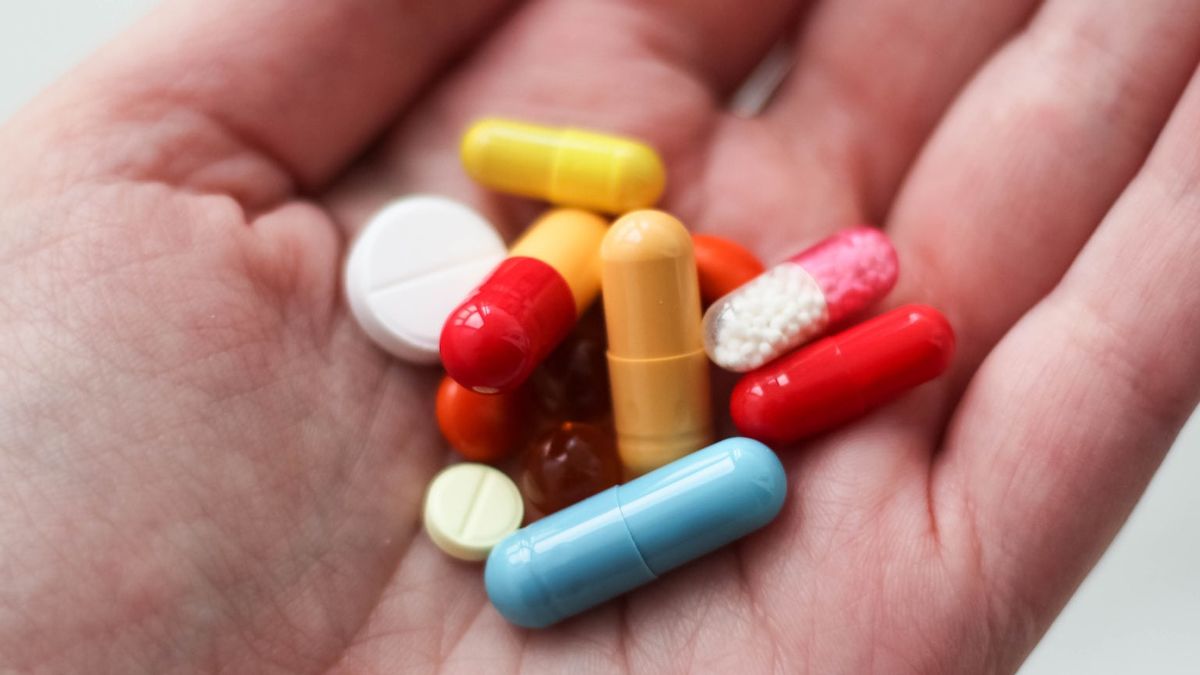JAKARTA - BPJS Kesehatan cooperates with private companies to provide drug distribution delivery services in the National Health Insurance (JKN) telemedicine trial. This is to increase the convenience for JKN participants in obtaining drugs.
Director of Planning, Development, and Risk Management of BPJS Health, Mahlil Ruby, said that people in certain areas, such as in 3T (leading, remote, and underdeveloped areas) have not been able to feel the benefits of health facilities due to access constraints.
The problem with access to health facilities can be due to geographical factors, transportation or the inability of health facilities that are in accordance with the needs of the community.
In addition, access to drugs is still an obstacle for some JKN participants. The cost of transportation to take drugs can be greater than JKN's monthly contributions.
For example, JKN participants have to spend Rp. 40,000 to go to the drug collection site, which means going round and round to Rp. 80,000, while the JKN class 3 contribution is only Rp. 42,000 with a payment scheme of Rp. 35,000 paid for by JKN participants and Rp. 7,000 borne by the government.
"Through telemedicine, BPJS Kesehatan tries to answer this challenge. With telemedicine, drug shipments can reach the door of JKN participants' houses," said Mahlil, Wednesday, September 28, quoted from Antara.
"Therefore, as an effort to overcome obstacles in drug distribution so as not to burden JKN participants, BPJS Health and Good Doctor have signed a cooperation agreement on the Utilization of Delivery Services for Drug Distribution in the National Health Insurance Program Telemedicine Trial," continued Mahlil.
In this trial, the Good Doctor telemedicine company will provide free drug delivery facilities for the first delivery to 20 first-level health facility points (FKTP) and pharmacies in Medan, Pekanbaru, Padang, Palembang, South Jakarta, Tangerang, Tigaraksa, Cirebon, Cimahi, Sukabumi, Tegal, Yogyakarta, Surakarta, Pasuruan, Denpasar, and Serang. Drugs will be sent directly to the doors of JKN participants' houses within an hour at a radius of five to eight km.
The telemedicine service will be carried out between doctors at FKTP and specialists at the hospital in the form of consultations to enforce diagnosis, provide therapy, and/or prevent disease severity.
Later, JKN participants who access basic services at FKTP and require a specialist doctor's consultation will not need to come to the hospital. Doctor FKTP will consult participants with specialist doctors at the hospital via telemedicine.
Consulting conducted by FKTP doctor to specialists can be in the form of enforcing diagnosis, providing therapy, and preventing disease severity from further escalation.
Hingga saat ini, terdapat 100 FKTP Non-Daerah Terpencil dan Daerah Terpencil yang telah memanfaatkan layanan telemedicine. Layanan ini juga telah dimanfaatkan oleh 117 rumah sakit, 62 pharmat dan ruang farm Puskesmas yang tersebar di wilayah Indonesia.
So far, for the examination of chronic diseases or examinations that require a referral, said Mahlil, JKN participants must consult a specialist directly. This of course requires more efforts from the participants, both in terms of costs, time, and manpower.
"With telemedicine, general practitioners at FKTP can make direct referrals to specialists in hospitals. Doctors at FKTP will explain the condition of patients and specialist doctors at the hospital will provide treatment advice so that the JKN patient treatment process runs more effectively and efficiently," Mahlil added.
Meanwhile, Managing Director of PT Good Doctor Technology Indonesia, Danu Wicaksana, said that the signing of this collaboration was in line with the vision of BPJS Health and Good Doctor. According to him, in order to achieve the vision of each agency, solid cooperation and collaboration is needed.
Good Doctor's collaboration with BPJS Kesehatan is expected to be a manifestation of optimizing technology in providing easy and affordable health access, but still quality, for all JKN participants in remote parts of Indonesia.
"We appreciate BPJS Health which is moving innovatively and progressively by adopting technology to provide quality health services in Indonesia. We aim to maintain our superiority in providing high-quality care through telemedicine to further support BPJS' efforts to improve the lives of more people in Indonesia," he said.
In the 2022 telemedicine trial, in addition to drug delivery, there was also an increase in the number of FKTPs participating in telemedicine trials in areas where the internet network was adequate.
The FKTP is equipped with ECG and ultrasound so they can conduct digital examinations.
According to Mahlil, the results of this telemedicine trial can be used as a basis for the Ministry of Health to develop telemedicine policies in Indonesia in the future.
This telemedicine trial is not the first trial conducted by BPJS Kesehatan. To answer challenges related to the effectiveness and efficiency of health services, since 2020 BPJS Kesehatan has carried out a telemedicine trial, but the trial does not include drug delivery.
JKN participants themselves must take drugs to pharmacies or health facilities that serve them. Indonesia is protected by comprehensive, fair and equitable health insurance.
The English, Chinese, Japanese, Arabic, and French versions are automatically generated by the AI. So there may still be inaccuracies in translating, please always see Indonesian as our main language. (system supported by DigitalSiber.id)









